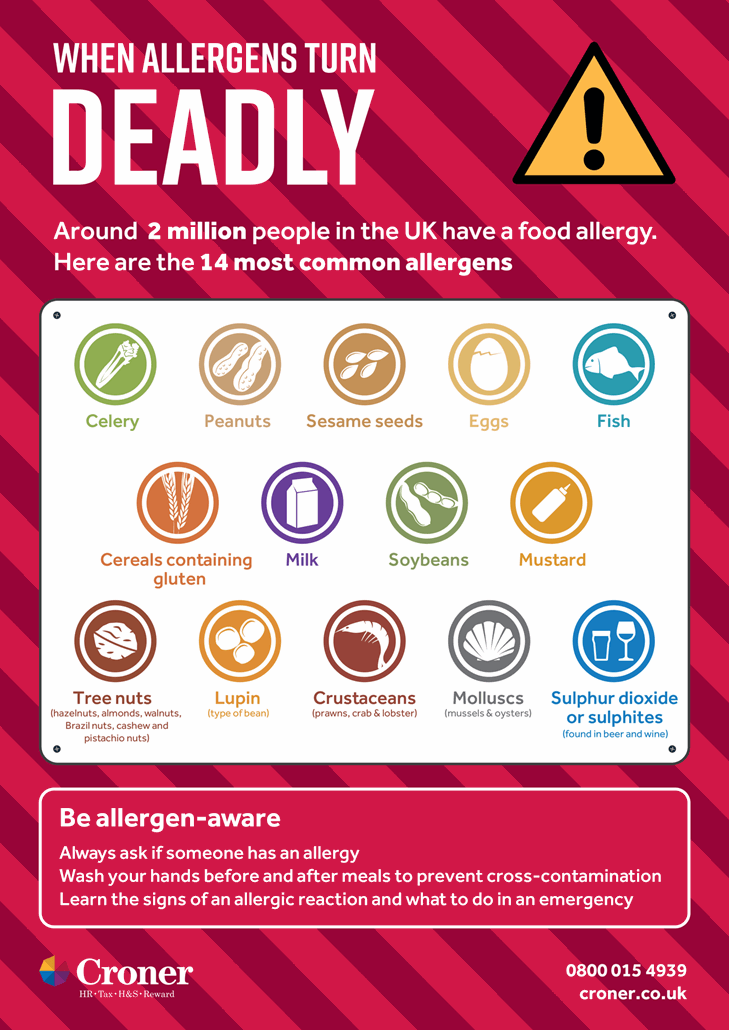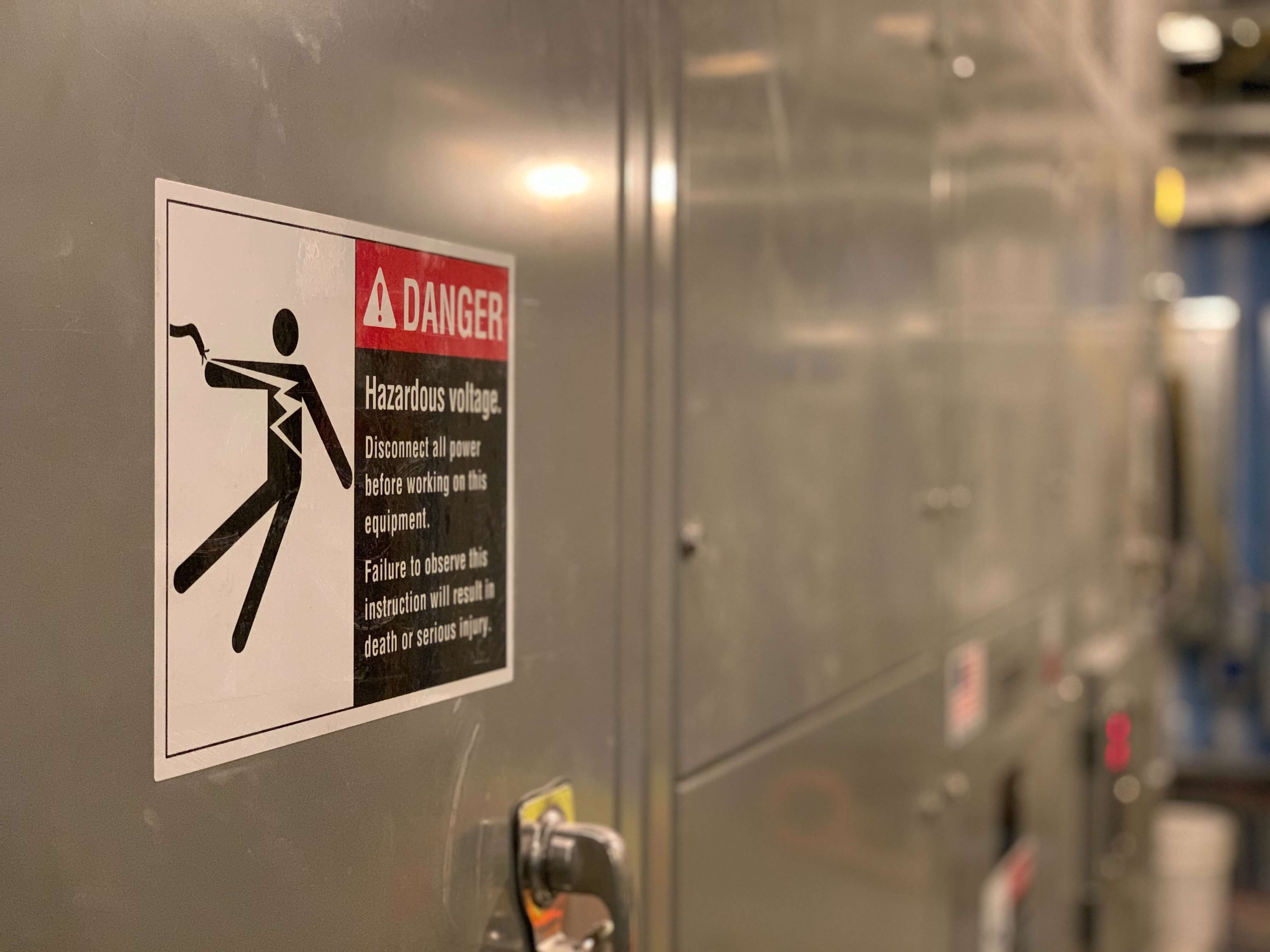A Food Allergy is an immune system reaction that occurs soon after eating certain foods.
Around 2 million people in the UK have a food allergy.
As an employer, there are a number of ways you can guarantee your employees’ safety.
Create a safe area for your staff to store their food. Provide safe snacks if your company provides food and inform any outside caterers of employees with food allergies.
Awareness is also key. Be aware of the different types of food allergens and which allergies (if any) your employees’ have.
Here are the 14 most common food allergens to look out for:

Add this infographic to your website by copying and pasting the following embed code:
When Allergens Turn Deadly
The 14 most common food allergens are:
- Celery – including stalks, leaves, seeds and powder, celeriac, and celeriac powder.
- Cereals containing gluten - e.g. wheat, barley rye and oats.
- Crustaceans – e.g. prawns, lobster, scampi and crab.
- Eggs – fresh, powdered, dried or pasteurised.
- Fish – all species, extracts, sauces, pastes, gelatine.
- Lupin – lupin seeds may be eaten as a snack, crushed to make flour for use in pastries, soups, sauces, pasta and bread for example.
- Milk – including whey and caseinates. Yogurt, cheese and other dairy products are high in casein. Non-dairy foods sometimes contain added casein as a whitening or thickening agent. Casein is also used in some protein supplements.
- Molluscs – for example mussels, squid, oysters, whelks, land snails.
- Mustard – liquid, paste, seeds, leaves and powder.
- Nuts – for example brazil, cashews, hazelnuts, pecans, pistachios, walnuts and macadamia.
- Peanuts – also called groundnuts, oil, butter, flour.
- Sesame – seeds, oil, paste.
- Soybeans – soya, found in different forms including tofu, flour, milk.
- Sulphur dioxide and sulphites – preservatives used in some drinks and foods, including but not limited to canned and frozen fruits and vegetables, fruit and vegetable juices, fruit fillings, syrups, jams, jellies and other preserves. Condiments like horseradish, ketchup, mustard, pickles and relishes, vinegar and wine vinegar, bottled lemon and lime juices and concentrates, alcoholic and non-alcoholic wine, beer and cider
The effects of taking any of these to those who have an allergy can vary from mild irritation to difficulty in breathing and eventually to more severe symptoms even Anaphylaxis where emergency services must be contacted immediately.
Be allergen-aware
- Always ask if someone has an allergy
- Wash your hands before and after meals to prevent cross-contamination
- Learn the signs of an allergic reaction and what to do in an emergency
Natasha’s Law
If you provide pre-packed food this must have full labelling of all Ingredients.
Expert support
If you're concered about allergens in your workplace, speak to a Croner expert today on 01455 858 132.
Related resources
Categories
- Business Advice
- Culture & Performance
- Disciplinary & Grievances
- Dismissals & Conduct
- Employee Conduct
- Employment Contracts and Documentation
- Employment Law
- Employment Rights Bill
- End of Contract
- Equality & Discrimination
- Health & Safety
- Hiring and Managing
- Leave & Absence
- Managing Health & Safety
- Moving
- Occupational Health
- Pay & Benefits
- Recruitment
- Risk & Welfare




